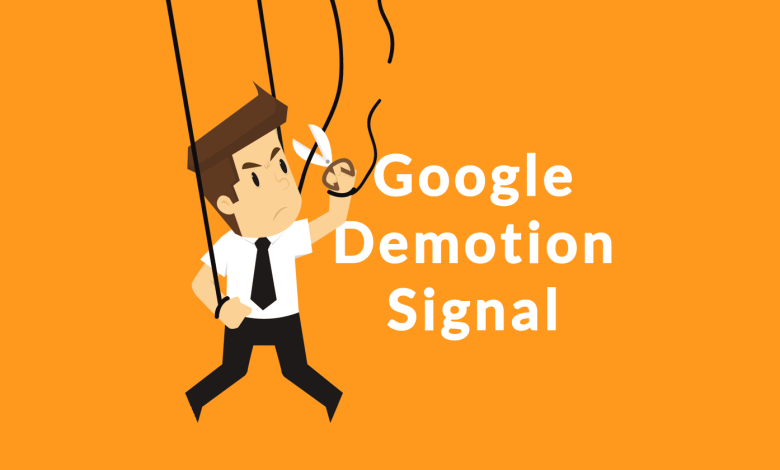
Google recently shared a blog post about its efforts to combat piracy, which included a link to a PDF report. The report discusses a ranking demotion signal that Google uses to lower the rankings of certain sites. This article delves into this lesser-known demotion signal.
Definition of a Demotion Signal
Negative ranking signals are not often discussed. When searching for information on ranking signals, you typically find articles about signals that help a site rank higher. However, there is little information about negative ranking signals.
Traditionally, negative ranking signals were considered to include links to irrelevant or questionable sites. As Google shifted its focus to user experience, factors like slow page speed also became negative ranking signals. Essentially, any positive ranking signal can potentially turn into a negative one.
For example, if fast page speed is a positive ranking signal, then slow page speed is negative. In this sense, a negative ranking signal can simply be the opposite of a positive one.
What is a Negative Ranking Signal?
Some argue that the absence of a ranking signal isn’t necessarily a negative signal. Many sites rank without an SSL certificate and are heavily laden with ads.
However, the demotion signal discussed in this context differs because it is not merely the opposite of a positive signal; it’s a standalone negative signal.
Negative Ranking Signal
It’s rare for Google to openly discuss a true negative ranking signal, which makes this document noteworthy. This particular signal has been previously mentioned in relation to torrent sites but was quickly forgotten.
While torrent sites might seem irrelevant to Internet marketing, the implications of this signal are significant for the SEO community.
According to Google’s document, DMCA reports filed against a site act as a negative ranking signal. The report states that the more DMCA notices Google receives, the lower a site ranks.
Google explains:
Demoting Infringing Websites
Besides removing pages from search results when notified by copyright owners, Google considers the number of valid copyright removal notices received for a site as one of the many signals factored into ranking search results.
This indicates that DMCA reports are a negative ranking signal, with the volume of such reports strengthening the negative impact.
Google further elaborates:
…sites for which Google has received a large number of valid removal notices appear much lower in search results. This "demotion signal" enhances the effect of DMCA takedown notices, as each delisted URL can impact the entire domain.
Key Takeaways:
- The DMCA notices must be valid. Validity might mean the notice is uncontested or deemed legally valid by a court.
- The statement introduces the concept of a demotion signal.
- The more valid DMCA notices received about a site, the stronger the demotion signal—a concept that could reduce PageRank distribution across the website.
Google remains vague on exactly how increased DMCA complaints affect the entire domain.
Is the Demotion Signal New?
No, it’s not new. Earlier versions of the signal date back to 2012, and it evolved into a formal demotion signal in 2014. Google announced this and released a whitepaper on the topic.
While the concept of a demotion signal has mainly been discussed in relation to torrents, its broader impact on SEO should not be overlooked.


